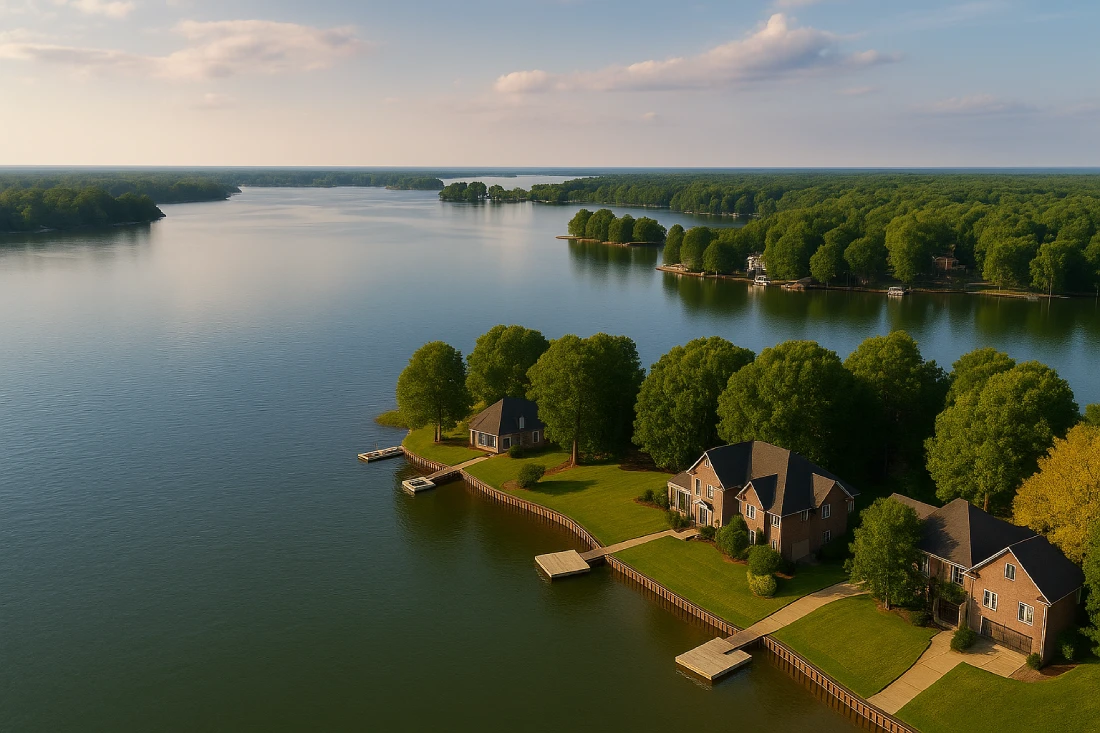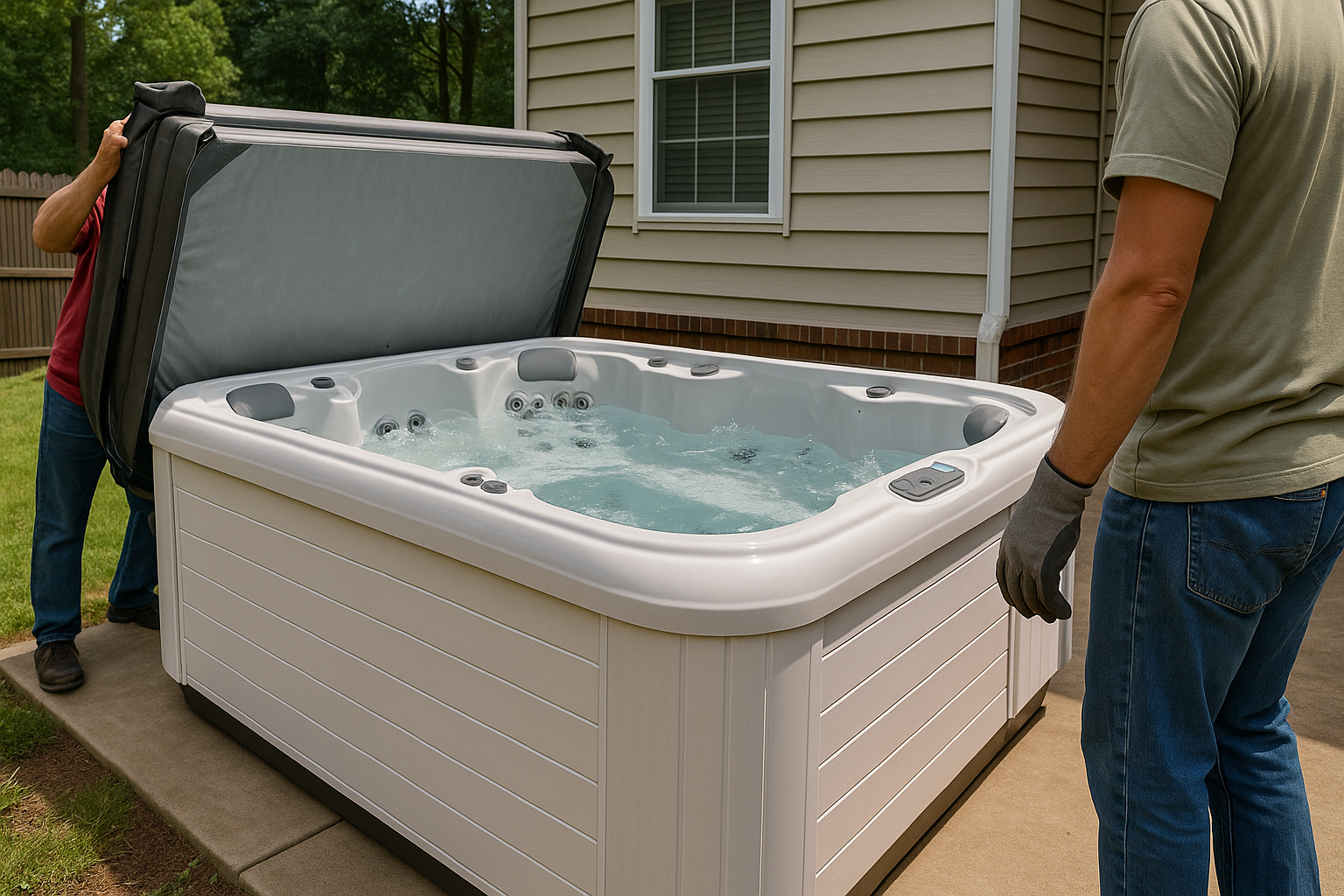Is North Carolina a good place to retire? For many retirees, it can be. The state has tax-friendly policies, a cost of living below the national average, quality healthcare facilities in metro areas, and a diverse geography from mountains to beaches. However, coastal hurricane risks, rising insurance costs, and limited rural healthcare access are important considerations.
Below, we examine North Carolina's retirement landscape: cost of living, taxes, healthcare quality, climate risks, and the state's best retirement communities. You'll find the information you need to decide if North Carolina fits your retirement goals.
Pros and Cons of Retiring in North Carolina
Before getting into specifics, let's look at the big picture. Living in North Carolina has advantages for retirees, but it's important to understand both sides.
Advantages of Retiring in North Carolina
- Lower cost of living: North Carolina's cost of living sits about 6% below the national average, with a regional price parity index of around 94.
- No tax on Social Security benefits: North Carolina does not tax Social Security income, which means savings for retirees who rely on these benefits.
- Flat and declining income tax rate: The state has a flat income tax rate of 4.25% in 2025, scheduled to decrease to 3.99% by 2027.
- Affordable property taxes: With an average effective property tax rate of about 0.73%, North Carolina has lower property taxes than many states.
- Diverse natural beauty: From the Blue Ridge Mountains to the Outer Banks beaches, North Carolina has varied landscapes and year-round outdoor activities.
- Quality healthcare in metro areas: Cities like Concord, Raleigh, Durham, and Charlotte have nationally ranked hospitals and medical facilities, including Duke University Hospital and UNC Medical Center.
- Educational opportunities: Adults 65 and older can audit university courses for free or at low cost at many North Carolina institutions.
- Rich cultural offerings: The state has active arts scenes, historic sites, live music venues, and diverse culinary options.
Disadvantages of Retiring in North Carolina
- Hurricane and flooding risk: Coastal areas face significant hurricane risk, and even inland regions can experience flooding from tropical systems.
- Rising homeowners insurance costs: Insurance premiums are increasing, particularly in high-risk coastal zones, which adds to housing expenses.
- Retirement income is taxed: While Social Security is exempt, withdrawals from 401(k)s, IRAs, and most private pensions are subject to state income tax.
- Higher-than-average violent crime in some areas: Certain cities have violent crime rates slightly above the national average, though many retirement-friendly communities remain safe.
- Limited public transportation: Outside major metropolitan areas, public transit options are sparse, making car ownership nearly mandatory.
- Rural healthcare challenges: Access to specialized medical care can be limited in rural counties, requiring longer travel times for treatment.
Cost of Living and Housing in North Carolina
One of North Carolina's notable features for retirees is its affordable cost of living. Understanding the cost of relocation and housing can help you with your move and budget for retirement.
Overall Cost of Living
North Carolina's cost of living sits about 6% below the national average, making it more affordable than states like California, New York, or Florida. However, costs vary significantly depending on where in the state you choose to live. Urban areas like Charlotte and Asheville tend to be pricier, while smaller towns and rural regions are less expensive.
About 29% of seniors in North Carolina spend 30% or more of their income on housing costs, which is comparable to the national average. This suggests that while the state is generally affordable, housing remains a significant expense for many retirees.
Housing Market for Retirees
As of late 2025, the median home value in North Carolina is about $332,000. However, this figure varies by region. Coastal communities like Wilmington and mountain towns like Asheville typically have higher prices due to demand and limited inventory. Meanwhile, Piedmont cities such as Greensboro, Winston-Salem, and Hickory tend to be more affordable.
For retirees downsizing from higher-cost states, North Carolina's housing market may provide value. Property values have been relatively steady in most markets.
Regional Cost Differences
- Coastal areas (Wilmington, Outer Banks, New Bern): Higher housing costs due to beach proximity and tourism demand, but still more affordable than comparable coastal markets in Florida or California.
- Mountain regions (Asheville, Boone, Hendersonville): Premium pricing for mountain views and cooler climate, with Asheville being particularly expensive.
- Major metro areas (Charlotte, Raleigh, Durham): Major cities, like Charlotte and Raleigh, have higher costs than state average but are competitive with other major Southeastern cities.
- Smaller cities and towns (Greensboro, Winston-Salem, Hickory, Southern Pines): Generally better value for housing and overall cost of living while maintaining good amenities.
Taxes for Retirees in North Carolina
Understanding North Carolina's tax structure is important for retirement planning. The state has some tax advantages for retirees, but it has some considerations you should factor into your budget.
Social Security Benefits
North Carolina does not tax Social Security benefits. This exemption means savings for retirees who depend on Social Security as a primary or supplemental income source. If you receive substantial Social Security income, this could save you hundreds or thousands of dollars annually compared to states that tax these benefits.
Income Tax on Retirement Accounts and Pensions
North Carolina taxes withdrawals from retirement accounts, including 401(k)s, IRAs, and most private pensions, at the state's flat income tax rate. Currently set at 4.25% for 2025, this rate is scheduled to decrease to 3.99% by 2027.
There is an important exception for certain government employees. If you worked for the state, federal government, or local government before August 12, 1989, you may qualify for pension exemptions under the Bailey settlement. This applies to government pensions earned during that service period.
Property Taxes
North Carolina has an average effective property tax rate of about 0.73%. This means on a $300,000 home, you'd pay about $2,190 annually in property taxes, which is less than in states like New Jersey, Illinois, or Texas.
The state also offers homestead exemptions for homeowners who meet certain criteria, including age and income requirements. These exemptions can reduce property tax obligations for qualifying retirees.
Sales Tax
The state sales tax rate is 4.75%, but counties and municipalities can add local taxes, bringing the combined rate to between 6.75% and 7.5% in most areas. It remains competitive with neighboring states.
North Carolina does not tax prescription drugs and offers exemptions on some groceries and basic items, which helps retirees on fixed incomes manage daily expenses.
Healthcare Access and Quality
Access to quality healthcare becomes more important in retirement. North Carolina has medical facilities in urban areas, but healthcare access varies considerably across the state.
Major Hospital Systems and Medical Centers
North Carolina has several nationally ranked hospitals and healthcare systems. Duke University Hospital in Durham consistently ranks among the top hospitals in the nation for specialized care. UNC Medical Center in Chapel Hill, Wake Forest Baptist Medical Center in Winston-Salem, and Atrium Health in Charlotte all provide comprehensive medical services.
The Research Triangle area (Raleigh-Durham-Chapel Hill) has notable healthcare facilities, research institutions, and specialists. Charlotte also has extensive medical resources as the state's largest city.
Healthcare Rankings and Outcomes
North Carolina ranks about 29th nationally for senior health outcomes. While this is middle-of-the-pack, the state has been working to improve healthcare access and outcomes, particularly in rural areas.
Healthcare costs in North Carolina are moderate compared to the national average. However, insurance premiums and out-of-pocket expenses can still be significant, especially for retirees not yet eligible for Medicare or those requiring specialized treatments.
Rural Healthcare Considerations
If you're considering retiring to a rural area in North Carolina, healthcare access deserves careful consideration. Many rural counties have limited medical facilities, with residents often traveling 30-60 minutes or more to reach specialists or hospitals with advanced capabilities.
Several rural hospitals in North Carolina have closed or reduced services in recent years, a trend affecting rural areas nationwide. If you have chronic conditions requiring regular specialist care, living closer to a metropolitan area may be necessary.
Wilmington is a coastal city with historic character. The city features a downtown area, nearby beaches, and the Cape Fear River waterfront. The climate is mild year-round, and the area has water-based activities.
Wilmington has medical facilities and a cultural scene. However, hurricane risk is significant, and insurance costs reflect this reality. The area can be crowded during the summer tourist season.
Medicare and Insurance
Medicare is available throughout North Carolina, and the state has numerous Medicare Advantage plans and supplemental insurance options. Comparing plans during the annual enrollment period can help you find coverage that meets your needs at the best price.
Climate, Weather, and Natural Risks
North Carolina's climate features four distinct seasons without extreme cold. However, weather-related risks deserve attention when planning your retirement.
Climate Overview
North Carolina experiences a generally mild climate with four seasons. Coastal areas have warmer winters and cooler summers due to ocean influence. The Piedmont region has hot summers and mild winters. Mountain areas have cooler temperatures and can receive significant snowfall in winter.
Summer temperatures typically range from the mid-80s to low 90s°F, while winter temperatures average in the 40s to 50s°F, though mountain areas are cooler. Spring and fall have mild temperatures and foliage throughout the state.
Hurricane and Flooding Risk
Coastal North Carolina faces significant hurricane risk, particularly from June through November. While direct hurricane strikes are relatively infrequent, tropical systems can bring heavy rain, flooding, and wind damage even to inland areas.
Recent hurricanes like Florence (2018) and Matthew (2016) caused catastrophic flooding across eastern North Carolina, affecting areas well inland from the coast. If you're considering coastal or eastern North Carolina, understanding flood zones and evacuation routes is essential.
Insurance Implications
Homeowners insurance costs have been rising across North Carolina, particularly in coastal counties. Properties in flood zones require separate flood insurance, which can be expensive. Some coastal areas have seen insurance premiums double or triple in recent years as insurers reassess climate-related risks.
Before purchasing property, especially near the coast, obtain insurance quotes to ensure coverage costs fit your retirement budget. Some retirees find insurance costs make coastal living less affordable than initially anticipated.
Lifestyle, Recreation, and Culture
Beyond finances and healthcare, quality of life matters in retirement. North Carolina has diverse recreational and cultural opportunities.
Outdoor Recreation
North Carolina's diverse geography offers year-round outdoor activities. The Blue Ridge Parkway and Great Smoky Mountains provide hiking and scenic drives, while the Outer Banks and Crystal Coast offer beach activities and water sports. With over 500 golf courses statewide, including the renowned Pinehurst area, the state caters to golfers of all skill levels.
Arts and Culture
The state has an active arts scene, from Asheville's galleries and craft breweries to Charlotte's museums and professional sports teams. The Research Triangle offers symphony orchestras and theater companies, while historic sites range from the Wright Brothers' first flight location to Civil War battlefields.
Education and Lifelong Learning
Many North Carolina universities allow adults 65 and older to audit courses for free or minimal fees. Community colleges also offer courses and workshops tailored to retirees' interests.
Community and Social Opportunities
The state's growing retiree population supports numerous social clubs, volunteer organizations, and senior centers. Many cities offer programs designed to help newcomers build connections through classes, organized trips, and social events.
Accessibility and Lifestyle Considerations
Transportation options, social dynamics, and community inclusiveness vary significantly across North Carolina and deserve careful evaluation when choosing your retirement location.
Transportation and Mobility
North Carolina is predominantly car-dependent outside major downtown areas. Public transportation is limited even in larger cities, though some active adult communities and CCRCs offer transportation services for residents. Downtown areas of Asheville, Durham, and Wilmington offer more walkable environments, while suburban and rural areas typically require driving for daily needs.
Social Life and Community Integration
Building social connections requires active participation in community activities, clubs, and organizations. Active adult communities (55+ housing) offer built-in social opportunities, while churches, volunteer organizations, hobby clubs, and senior centers provide additional connection points. The Research Triangle, Charlotte, and Asheville have large transplant populations, making integration easier than in smaller towns with more established communities.
Diversity and Cultural Demographics
Major metropolitan areas like Charlotte, Raleigh-Durham, and Greensboro have substantial Black, Latino, and Asian populations, offering multicultural dining and cultural festivals. Rural areas and smaller towns tend to be less diverse. Cities and university towns generally are more progressive, while some rural areas maintain more traditional cultural attitudes.
LGBTQ+ Friendliness
LGBTQ+ friendliness varies significantly by location. Cities like Asheville, Durham, Chapel Hill, and Charlotte have established LGBTQ+ communities, Pride celebrations, and nondiscrimination ordinances. The state has limited protections at the state level, and experiences in rural areas are mixed. Urban areas offer LGBTQ+-affirming healthcare providers through major hospital systems. Connecting with local LGBTQ+ organizations before moving can provide valuable insights into the community climate.
Best Places to Retire in North Carolina
Where you settle in North Carolina significantly impacts your retirement experience. Here are locations popular with retirees, each offering distinct characteristics.
Raleigh-Durham-Chapel Hill (The Triangle)
The Research Triangle frequently appears on lists of retirement destinations in North Carolina. The area has healthcare facilities (Duke, UNC hospitals), educational opportunities, cultural amenities, and a moderate climate. The region has a well-educated, diverse population and continues growing, adding new restaurants, entertainment, and services.
Costs of living in Durham and adjacent areas are higher than the state average but remain reasonable compared to major metro areas in other states. The area offers both urban and suburban living options with developed infrastructure.
Charlotte
As North Carolina's largest city, Charlotte provides an urban retirement experience with big-city amenities. The city has healthcare facilities, a major international airport, professional sports teams (Panthers, Hornets), and an arts scene.
Charlotte's banking sector creates a cosmopolitan atmosphere with diverse dining and cultural options. The city's growth means continuous development and new opportunities, though traffic congestion is increasing. Suburban areas around Charlotte offer housing with access to city amenities.
Asheville
Asheville attracts retirees seeking mountain living with a cultural scene. The city is known for its craft breweries, farm-to-table restaurants, arts community, and Blue Ridge Mountain setting. The climate is cooler than the rest of the state, which appeals to those who prefer milder summers.
However, Asheville's popularity has driven housing costs significantly higher than the state average. Limited inventory and high demand mean competition for homes. The area's mountainous terrain can make winter driving challenging.
Wilmington
Wilmington is a coastal city with historic character. The city features a downtown area, nearby beaches, and the Cape Fear River waterfront. The climate is mild year-round, and the area has water-based activities.
Wilmington has medical facilities and a cultural scene. However, hurricane risk is significant, and insurance costs reflect this reality. The area can be crowded during the summer tourist season.
Greensboro-Winston-Salem-High Point (The Triad)
The Triad offers retirement options in mid-sized cities. These cities provide lower housing costs than Charlotte or the Triangle while maintaining healthcare, cultural attractions, and recreational opportunities.
The Triad has a moderate climate, manageable traffic, and a more relaxed pace than larger metro areas. It's an option for retirees seeking affordability without giving up urban conveniences.
Pinehurst-Southern Pines
This area is known for golf, offering a resort-style retirement experience. The region has over 40 golf courses, including the Pinehurst Resort. The area attracts retirees interested in golf and outdoor activities.
FirstHealth Moore Regional Hospital provides medical care. Housing options range from golf communities to more affordable neighborhoods. The area has a small-town character while offering certain amenities.
Smaller Towns and Coastal Communities
Towns like New Bern, Beaufort, Hendersonville, and Brevard offer small-town environments with access to nature. These communities typically have lower costs of living and slower paces, but may require driving to larger cities for specialized services or extensive shopping.
Each has its own character. Coastal towns offer water access, while mountain communities provide cooler climates and hiking opportunities. These areas may suit retirees seeking quiet, close-knit communities.
Practical Considerations for Moving to North Carolina
Before committing to a retirement move, consider these practical factors that affect daily life.
Transportation
North Carolina is largely car-dependent outside major city centers. Public transportation is limited even in cities like Charlotte and Raleigh compared to Northeastern or West Coast metros. You'll need a reliable vehicle for most locations.
Major airports in Charlotte, Raleigh-Durham, and Greensboro provide connectivity for travel. Interstate highways make road trips and visits to family in other states relatively convenient.
Testing a Location Before Committing
Consider spending extended time in your target area before buying a property. Rent for a few months, preferably during different seasons, to experience the climate, traffic patterns, and community feel. This trial period helps identify potential issues before making a permanent commitment.
Visit during hurricane season if considering coastal areas, or experience winter in mountain regions to assess your comfort with seasonal challenges.
Moving for Seniors
Seniors often benefit from moving options that include packing, loading, transportation, unloading, and unpacking. These reduce physical strain and the risk of injury.
Beyond basic moving services, seniors may require specific moving considerations, including the assistance of professional organizers to help with downsizing, senior move managers to coordinate the entire process, estate sale companies to handle unwanted items, and temporary storage during the transition. These services add $500 to $3,000 or more to overall costs but significantly reduce stress and physical demands on older adults.
Additional expenses include immediate setup costs like safety modifications (grab bars, improved lighting), new furniture sized appropriately for smaller spaces, utility deposits and connection fees, and
Establishing Residency
North Carolina requires new residents to get a state driver's license within 60 days of establishing residency. You'll need to register vehicles and update voter registration. The DMV requires documentation proving residency, such as utility bills or lease agreements.
Is North Carolina Right for Your Retirement?
North Carolina offers certain retirement advantages, including affordable living relative to many states, tax-free Social Security, diverse geography, and quality healthcare in urban areas. However, coastal hurricane risk, rising insurance costs, taxes on retirement withdrawals, and limited rural healthcare are important considerations.
North Carolina can be a suitable retirement destination for many retirees, particularly those seeking affordability and recreational variety who are willing to live near metropolitan areas for healthcare access. Success depends heavily on choosing the right location. Urban and suburban areas offer certain advantages, while coastal and mountain regions require accepting higher costs or specific risks.
Visit extensively before committing. With careful location selection and realistic expectations, North Carolina may provide a satisfactory retirement experience at a reasonable cost.
Frequently Asked Questions
How much money do you need to retire comfortably in North Carolina?
Estimates suggest at least $825,000 in retirement savings, though this varies by location. Coastal and mountain areas cost more, while smaller towns may allow retirement with less.
What is the safest city to retire in North Carolina?
Smaller towns like Cary (near Raleigh), Davidson (near Charlotte), and Southern Pines frequently rank among the safer areas, though safety varies by neighborhood even within the same city.
Can I afford to retire in North Carolina on Social Security alone?
While North Carolina's cost of living is below the national average, the median Social Security benefit of about $1,900 monthly may not cover all expenses. Supplemental income from savings, pensions, or part-time work helps provide financial security.
Is it better to retire in North Carolina or South Carolina?
Both states have similar climates and costs of living. South Carolina has slightly lower retirement income taxes but higher property taxes, while North Carolina has a more developed healthcare infrastructure and a more diverse geography.
How much will moving to North Carolina cost?
Interstate moves to North Carolina typically cost between $2,000 and $10,000, depending on distance and volume of belongings, plus immediate expenses like deposits and new furniture. For strategies to reduce these costs, see our moving, packing, and planning tips.















































.webp)


















